A mother’s love truly knows no limits. When a hooman came across a mother dragging her puppy along the street, their heart broke into a million pieces.
The puppy, crying loudly in pain, seemed to be hurt, and his mother was dragging his body, begging for help.
The hooman immediately contacted local animal rescuers who answered the call and immediately made their way to the location.
Help Is Finally Here
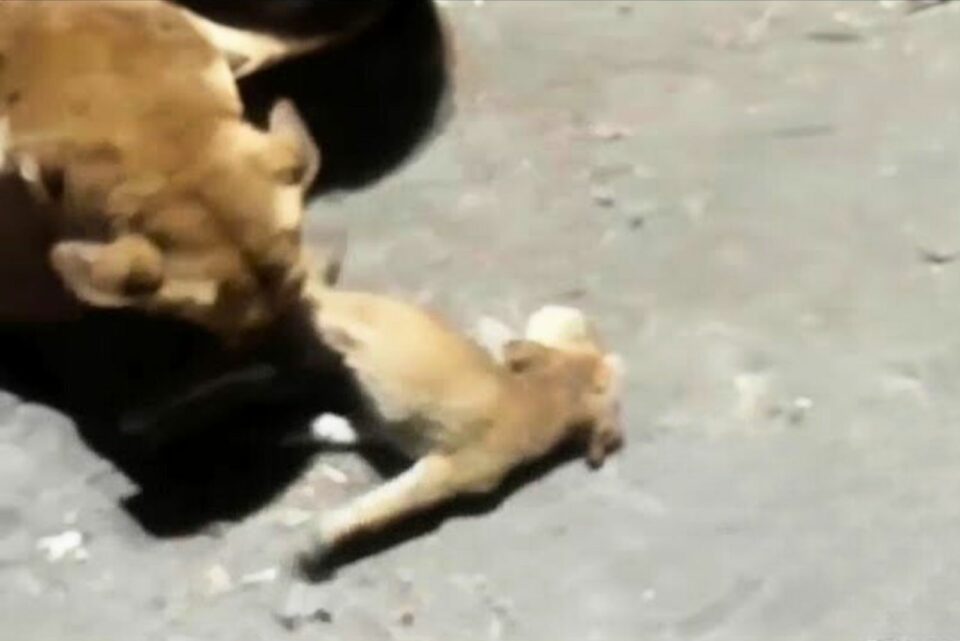
The rescuers learned that the hooman who called them was their owner and that the puppy ran into the street and had a terrible accident. His mother was the first one to find him and she was trying her best to relocate him to a safer place.
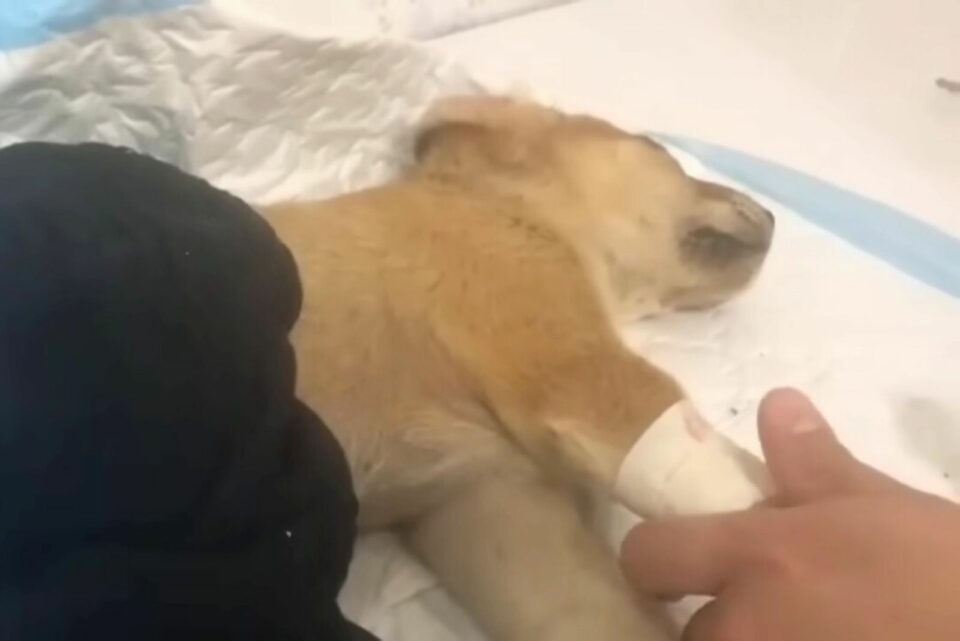
As soon as they arrived, the pup received a thorough medical exam and was immediately put in a neck brace.
The vets decided to sedate him so that he would go to sleep and finally rest.
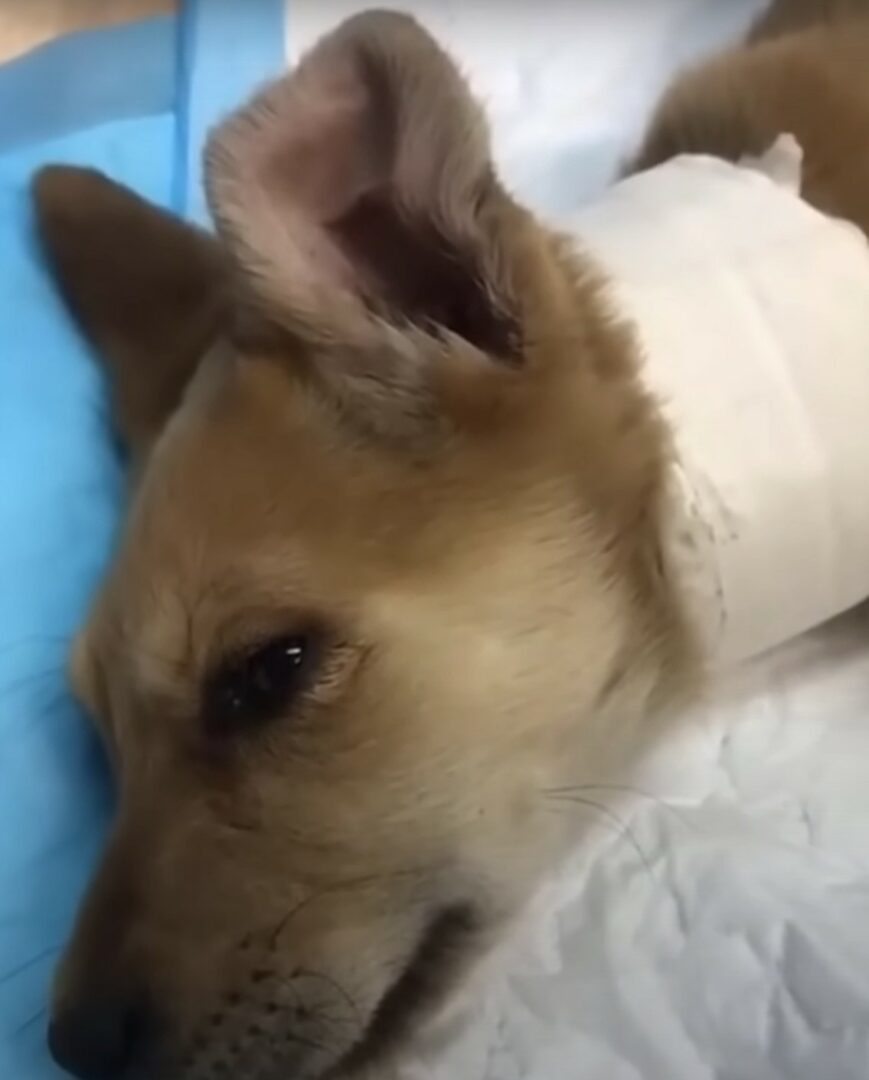
Road To Recovery
Even though the pup was finally safe, he had a long way to go.
Because of his injury, he wasn’t able to walk properly and kept on swaying. The incredible hoomans who were taking care of him then decided to transfer him to another hospital that had modern machines that would allow this poor guy to recover even faster.
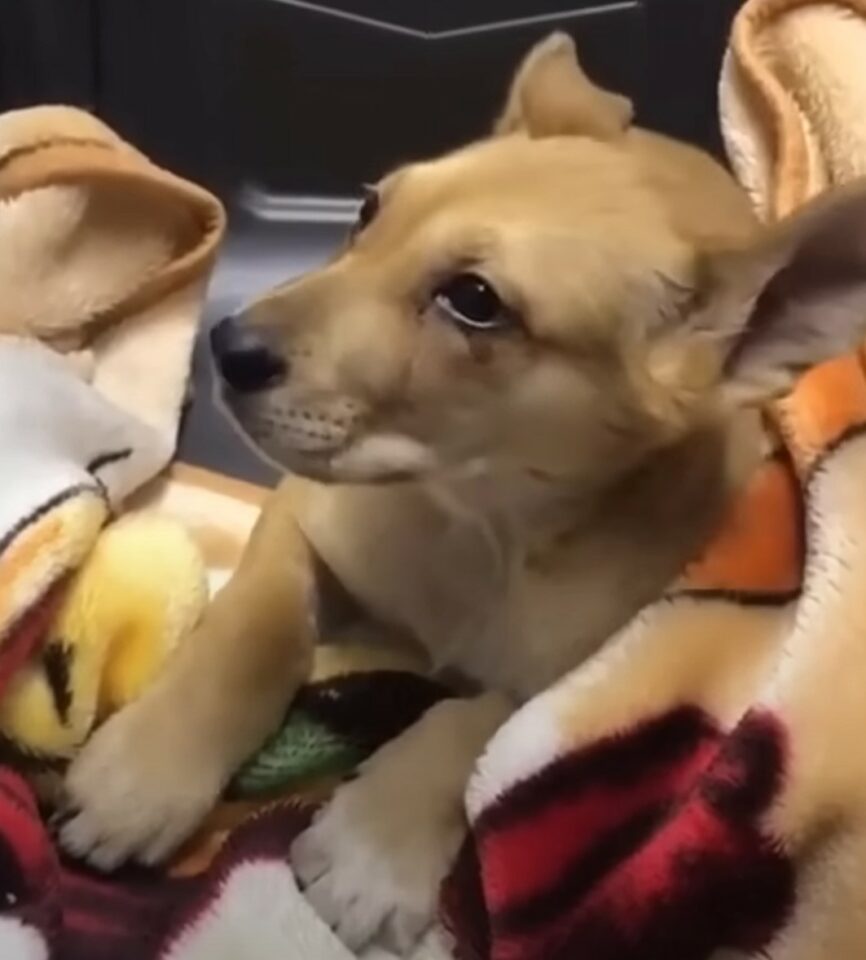
The results later revealed that there was tension on the spine and the spinal cord, resulting in the accumulation of fluid in the cerebellum, which resulted in the shrinkage of the spine.
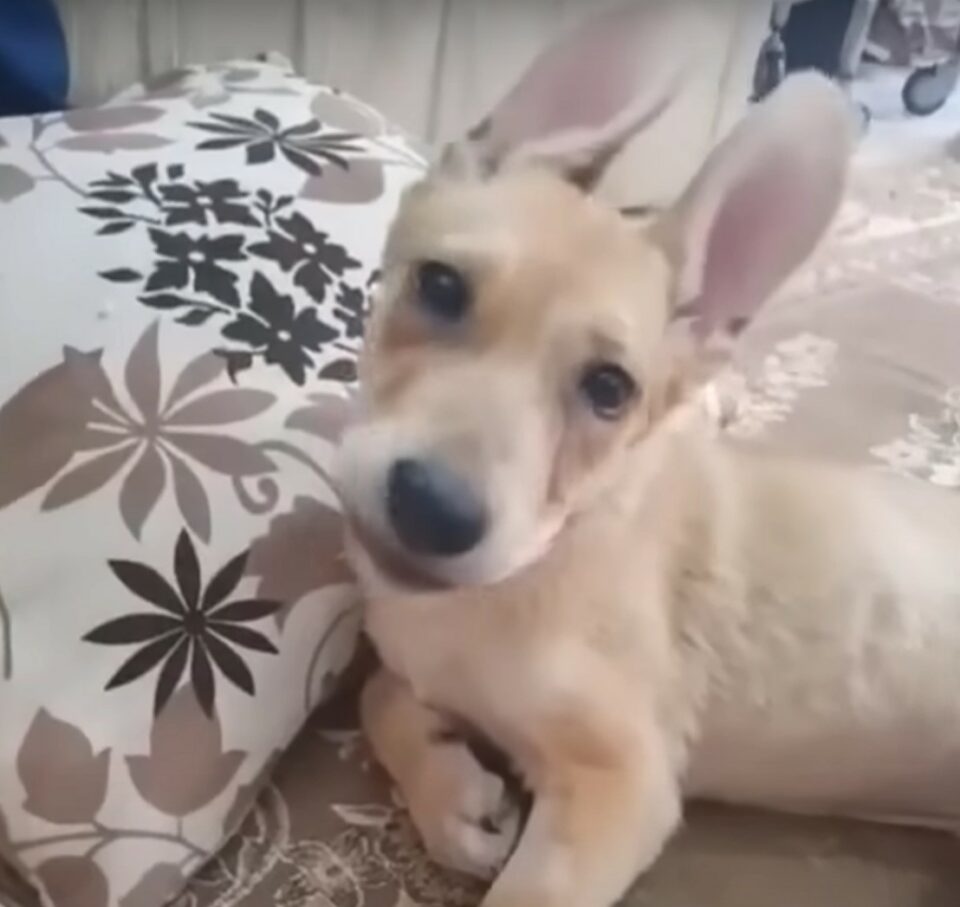
Even though surgery was the only option the doctors had in helping this pup, it would be too risky to operate on him as the surgical site is way too sensitive, and the doggo might lose too much blood.
At The Fosters
When his foster family saw just how determined he was to get back on his paws and live a normal life again, they were overjoyed.
They knew that with just a little bit of love, care, and patience, this sweet boy would be reunited with his mother in no time.
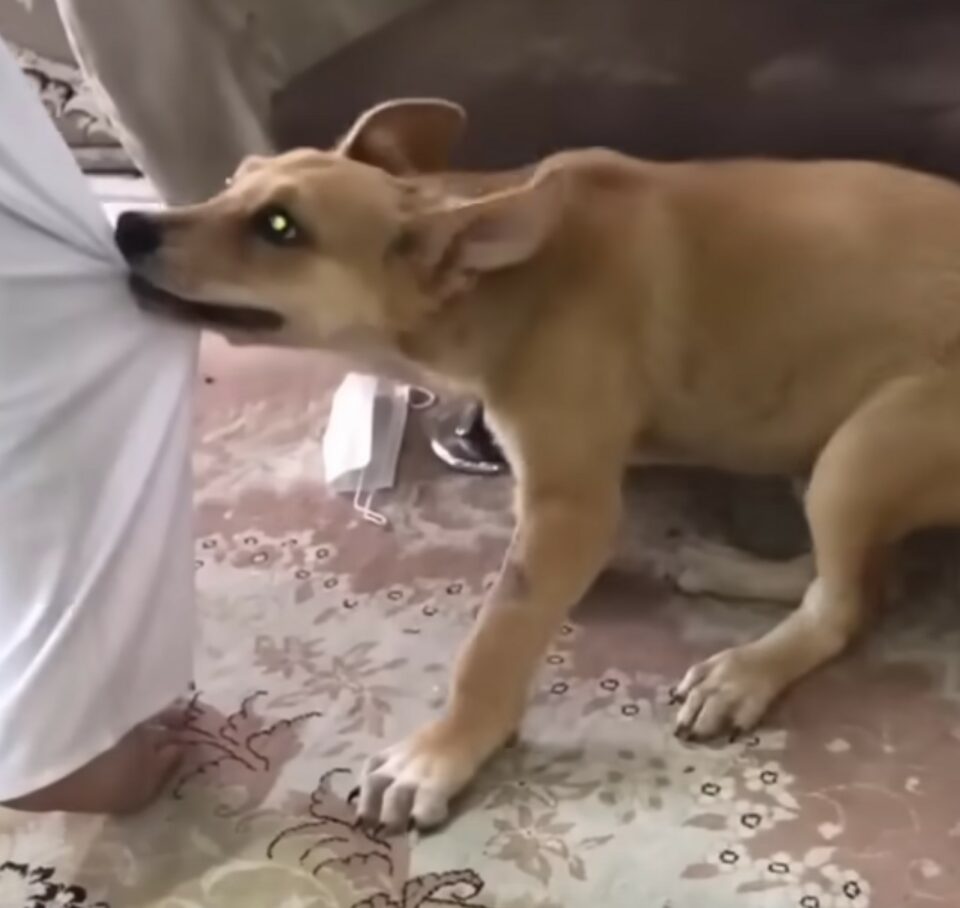
The pup, now named Ahu, spent almost two months at his foster before going in for another checkup. When his CT scan showed that his condition was drastically improving, his hoomans couldn’t be happier.
However, they also showed that he would never be able to walk properly again.
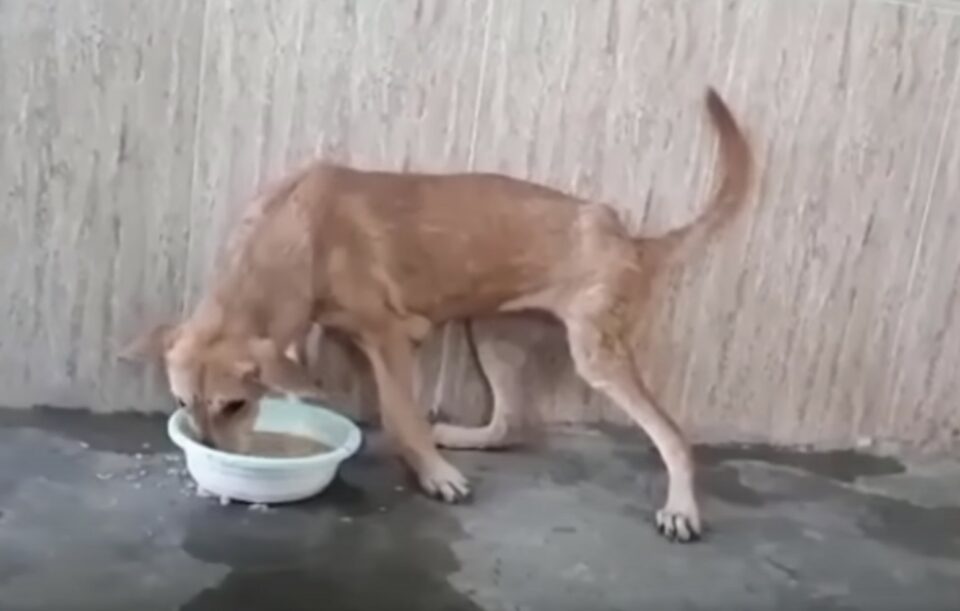
His hoomans are determined to provide Ahu with everything he needs to lead a life full of happiness, love, and adventure.
This sweet pup is all grown up now and is living the life of every doggy’s dream!
If you’ve ever shared your snacks with your furry friend, you might want to pause before tossing them a piece of onion. As a seasoned dog trainer, you’re well aware that certain foods can be harmful to your canine companion. Onions, in particular, can pose a threat to your dog’s health if consumed in large quantities. Understanding the potential risks associated with feeding onions to your dog is crucial in keeping them safe and healthy.
You know that onions contain compounds that can be toxic to dogs, but determining the exact amount that can cause harm isn’t always straightforward. It’s essential to be mindful of what you feed your four-legged friend to prevent any unwanted health issues. Stay tuned as we navigate through the potential dangers of onions for dogs and how you can ensure your pet stays out of harm’s way.
Understanding Onion Toxicity in Dogs
Onions, including all forms like raw, cooked, or powdered, can be dangerous for your furry friend.
Onions contain compounds that can damage your dog’s red blood cells, leading to a condition called hemolytic anemia. This condition affects the ability of your dog’s blood to carry oxygen, resulting in serious health issues.
It’s essential to know that even a small amount of onion can be toxic to your dog. The toxic dose can vary based on your dog’s size, breed, and overall health, making it crucial to avoid feeding your dog any food containing onions.
Symptoms of onion toxicity in dogs may include weakness, vomiting, diarrhea, lethargy, and dark-colored urine. If you notice any of these signs in your dog after consuming onions, it’s vital to seek immediate veterinary care.
Remember, prevention is key when it comes to keeping your dog safe from onion toxicity. Ensure all onion-containing foods are kept out of your dog’s reach, and educate yourself and your family members about the dangers of feeding onions to dogs.
Always prioritize your dog’s well-being by offering them a diet free from harmful ingredients like onions. If you suspect your dog has ingested onions or shows any symptoms of toxicity, don’t hesitate to contact your veterinarian for guidance and care.
Symptoms of Onion Toxicity in Dogs
If your furry friend has ingested onions, you might notice various symptoms indicating onion toxicity. Here’s what to look out for:
Weakness
Your dog may appear unusually weak or lethargic. If you notice your dog having difficulty moving around or showing signs of tiredness, it could be a symptom of onion toxicity.
Vomiting
One common symptom of onion toxicity in dogs is vomiting. If your dog suddenly starts vomiting and you suspect onion ingestion, it’s essential to take quick action to ensure your dog’s well-being.
Dark-Colored Urine
Dark-colored urine can be a sign of underlying health issues, including onion toxicity. If you observe your dog’s urine turning dark, it’s crucial to consider the possibility of onion ingestion and seek veterinary help promptly.
Breathlessness
Onion toxicity can lead to difficulty breathing in dogs. If you notice your dog panting excessively or having trouble catching their breath, it could be a severe symptom of onion poisoning.
Pale Gums
Check your dog’s gums for any signs of paleness. Paleness in the gums can indicate a lack of oxygen in the blood, which could be a result of onion toxicity.
Remember, if you notice any of these symptoms or suspect that your dog has consumed onions, it’s vital to contact your veterinarian immediately for proper diagnosis and treatment. Protecting your canine companion from harmful foods like onions is crucial for their health and well-being.
Treatment and Prevention of Onion Poisoning
Seeking Veterinary Care
If your dog shows any symptoms of onion toxicity, such as weakness, vomiting, dark-colored urine, breathlessness, or pale gums, it’s crucial to seek immediate veterinary care. Prompt treatment can help mitigate the effects of onion poisoning and improve your dog’s prognosis.
Treatment Options
Veterinary treatment for onion poisoning may include inducing vomiting, administering activated charcoal to prevent further absorption of toxins, and providing supportive care such as intravenous fluids and oxygen therapy. The vet may also monitor your dog’s red blood cell count and overall condition closely.
Preventative Measures
To prevent onion poisoning in dogs, ensure they don’t have access to any foods containing onions or onion powder. Be cautious when cooking or disposing of onions, as even small amounts can be harmful to your furry friend. Educate yourself and other family members about the dangers of onions for dogs.
Dietary Considerations
Feeding your dog a balanced diet free from harmful ingredients like onions can help maintain their overall health and well-being. Consider consulting with a veterinary nutritionist to ensure your dog’s diet meets their nutritional requirements without including any toxic foods.
Supervision and Awareness
Keep a watchful eye on your dog’s surroundings to ensure they don’t accidentally consume onions or foods seasoned with onion powder. Stay informed about common household foods that may contain onions and take necessary precautions to protect your pet from accidental ingestion.
Onions and Your Dog’s Health
Remember that your dog’s health is paramount, and avoiding feeding them onions is a simple yet crucial step in ensuring their safety. By being proactive in preventing onion poisoning and seeking prompt veterinary care if needed, you can help protect your beloved canine companion from potential harm.
Consulting a Veterinarian for Onion Poisoning
When it comes to your canine companion’s health, consulting a veterinarian for onion poisoning is crucial.
- Recognizing Symptoms: If you suspect your dog has ingested onions and shows symptoms like vomiting, diarrhea, weakness, or lethargy, it’s essential to seek immediate veterinary attention.
- Assessment and Treatment: A veterinarian will conduct a thorough evaluation to determine the extent of onion toxicity. Treatment may involve inducing vomiting, administering activated charcoal, and providing supportive care.
- Monitoring and Follow-Up: Your vet will monitor your dog’s condition closely and may recommend follow-up visits to ensure recovery and prevent any complications from onion poisoning.
- Importance of Veterinary Care: Remember, onion toxicity in dogs can be serious and even life-threatening. Prompt veterinary care is key to managing the situation effectively.
- Preventative Measures: To avoid onion poisoning in the future, ensure onions are kept out of reach of your dog. Be cautious when cooking or disposing of foods containing onions to prevent accidental ingestion.
- Overall Guidance: Your veterinarian is your best ally in safeguarding your dog’s health. Don’t hesitate to reach out for professional advice and care in case of onion poisoning or any other health concerns for your furry friend.
Immediate veterinary intervention is vital if your dog shows signs of onion toxicity. Your vet will provide the necessary care and guidance to ensure the well-being of your beloved pet.
Conclusion
So, remember, when it comes to onions and your furry friend, it’s better to be safe than sorry. Keep those onions away from your pup’s reach to avoid any potential risks of toxicity. If you notice any unusual symptoms after your dog has ingested onions, don’t hesitate to contact your vet immediately. Quick action is key to ensuring your dog’s well-being in case of onion poisoning. Stay vigilant, keep your dog’s environment onion-free, and always seek professional help if needed. Your pup’s health is top priority, so take the necessary precautions to keep them safe and happy.
Frequently Asked Questions
Can dogs eat onions?
No, dogs should not eat onions. Onions contain compounds that can lead to hemolytic anemia in dogs.
What are the symptoms of onion poisoning in dogs?
Symptoms of onion toxicity in dogs may include vomiting, diarrhea, weakness, and lethargy.
What should I do if my dog ingests onions?
If your dog ingests onions, contact a veterinarian immediately for guidance.
How is onion poisoning in dogs treated?
Treatment for onion poisoning may involve inducing vomiting, administering activated charcoal, and providing supportive care.
How can I prevent onion poisoning in my dog?
Prevent onion poisoning by keeping onions out of reach of your dog and seeking professional veterinary advice.
[no_toc]

Hey there, I’m Janet Brooks, a dog-loving student from California. I’m all about helping pups in need, especially those without homes. Me and my awesome friends work together to give shelter and love to stray dogs. Oh, and I also write blogs about dogs to share helpful info.